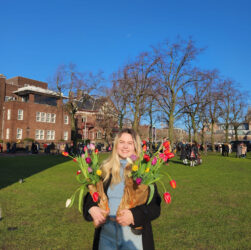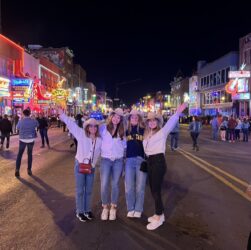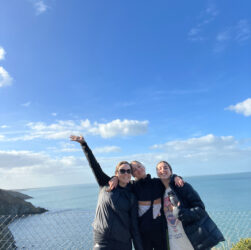Mia Uys BCom International Business Semester Exchange in the Second Semester, 2022 at Vrije Universiteit Amsterdam Pre-departure: There were …


Mia Uys BCom International Business Semester Exchange in the Second Semester, 2022 at Vrije Universiteit Amsterdam Pre-departure: There were …

Emily Hobson BCom International Business Semester Exchange in the Second Semester, 2022 at UNC Greensboro Pre-departure: …where to begin? The …

Ruth O’Sullivan BCom International Business Student Semester Exchange in the Second Semester, 2022 at the Trinity College Dublin Pre-departure: Before …